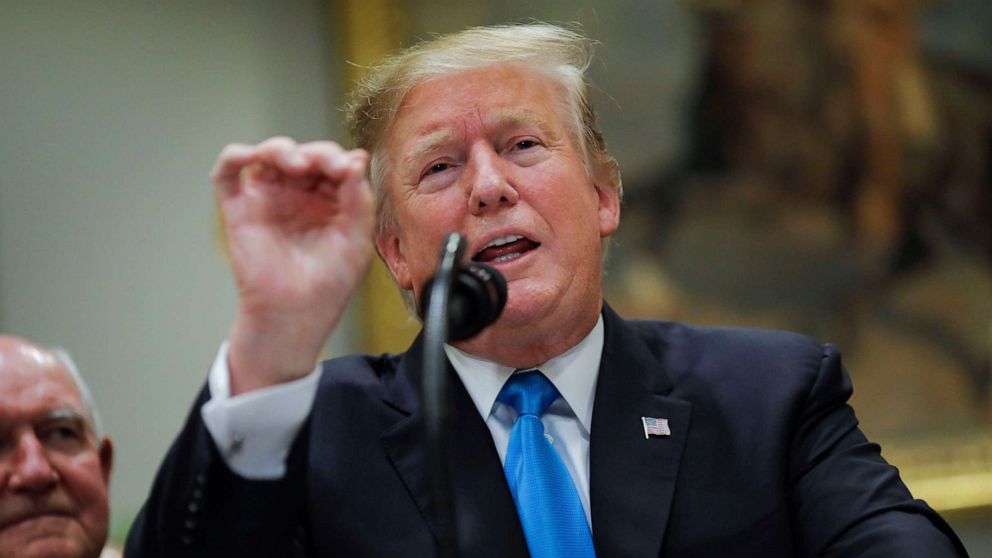The financial landscape is on the verge of a seismic shift as former U.S. President Donald Trump proposes a 10% tariff on all imported goods, a move that analysts believe could disrupt every asset class. With the overwhelming likelihood of securing the Republican nomination for the 2024 race, Trump aims to reshape global trade and incentivize domestic production. However, experts caution that this tariff plan could have far-reaching consequences, causing market turbulence and negatively impacting the U.S. economy.

Photo from: ABC News
The Controversial Tariff Proposal
Donald Trump’s ambitious plan to impose a 10% tariff on all imported goods has sparked widespread concern among analysts. Michael Every, global strategist at Rabobank, emphasizes that this move will “shake up every asset class,” creating uncertainty and challenges for investors across equities, FX, bonds, and more.
The proposed tariff has faced bipartisan criticism, with experts highlighting potential negative repercussions. Treasury Secretary Janet Yellen acknowledges that while tariffs may be appropriate in some cases, Trump’s plan could raise the cost of essential goods for American businesses and consumers. The Tax Foundation warns that such a tariff could effectively increase taxes on U.S. consumers by over $300 billion annually.
Analysts from the center-right American Action Forum suggest that the tariff plan could distort global trade, discourage economic activity, and have broad negative consequences for the U.S. economy. The think tank estimates a potential 0.31% ($62 billion) decrease in U.S. GDP, signaling adverse effects on consumers and overall welfare.
READ ALSO: New Guaranteed Income Program In Long Beach Offers Financial Support To Vulnerable Families
Trump’s Neo-Hamiltonian Vision
Trump’s proposed tariff is viewed not just as a percentage increase but as a strategic move to “structurally break the global system” and reindustrialize the U.S. in a neo-Hamiltonian manner. This historical approach seeks to make U.S. production more economical domestically, potentially reshaping the international economic landscape.
Market analysts, learning from the past, are gearing up for potential disruptions in the event of a Trump presidency. The unpredictable nature of Trump’s geopolitical decisions, particularly regarding trade and international relations, adds an element of uncertainty that markets may find challenging to navigate. As Trump’s proposed tariff plan gains attention, investors are urged to consider the broader structural impact on global trade and economic dynamics.
READ ALSO: Indiana Department Of Revenue Opens 2024 Tax Filing Season
















































